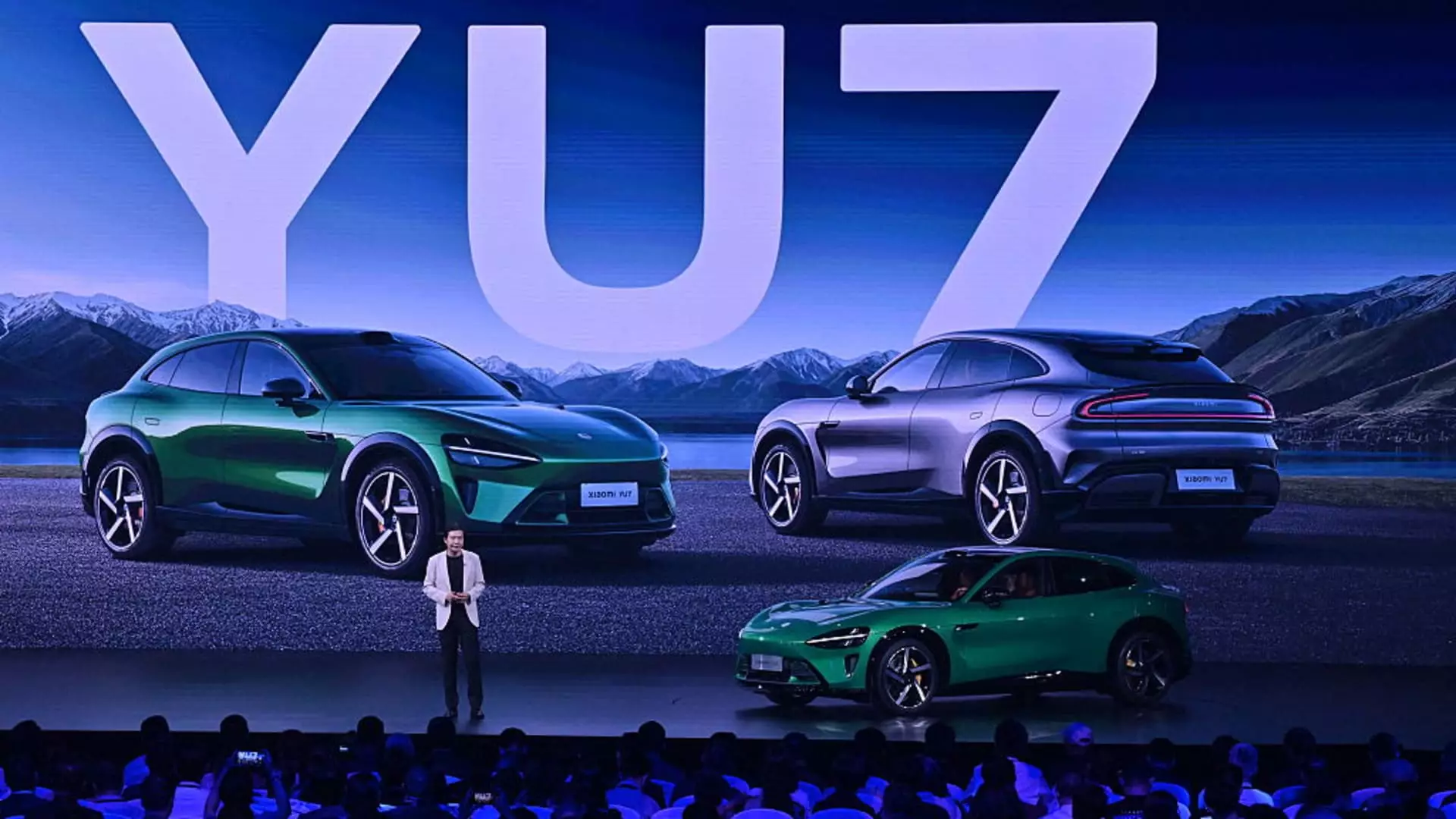Xiaomi, a brand synonymous with budget-friendly smartphones, is making significant strides in the competitive electric vehicle (EV) sector. Fresh off the launch of its first electric car under a year ago, the tech giant has unveiled its bold contender—the YU7 SUV. This launch isn’t just another entry into a packed marketplace; it’s a calculated shot across the bow aimed directly at Tesla, which has managed to dominate the EV scene in China, particularly with its Model Y. The YU7 boasts an impressive driving range of 760 kilometers (472 miles) on a single charge, outpacing the Model Y’s 719 kilometers, presenting Xiaomi with a tantalizing opportunity to capitalize on consumers’ anxieties surrounding battery longevity.
However, while the numbers sound promising, one must question whether this flashy statistic can translate into meaningful market traction. Will potential buyers be swayed merely by range, or will they demand a holistic driving experience complete with performance, style, and reliability?
Price Positioning and Market Dynamics
Xiaomi has strategically priced the YU7 between 250,000 and 320,000 yuan (approximately $34,700 to $44,420), allowing it to march into a competitive landscape dominated by Tesla’s pricing at 263,500 yuan. But pricing alone won’t seal the deal. The EV marketplace is rife with alternatives, from BYD’s value-driven models to budget offerings like the Wuling Hongguang Mini. The question looms: in a market that values brands and performance, can Xiaomi sway consumer loyalty from an established giant?
Analysts are optimistic about the YU7’s potential to siphon off Tesla’s market share. Predictions of 30,000 units per month seem overly optimistic when considering that the Chinese EV market’s pulse fluctuates with consumer preferences and the collateral reputation effects from incidents like the recent crash involving Xiaomi’s SU7. The shadow of lingering safety concerns may distort the optimistic sales outlook that City analysts favor.
Strategizing for Success: More Than Just Features
Xiaomi’s ambitions reach beyond competitive pricing and extensive range; the YU7 is being marketed as a “luxury SUV,” which is a bold statement from a company that has primarily operated in the affordable segment. This positioning suggests Xiaomi is aiming for a higher-end market, yet it risks alienating its core demographic, which has traditionally sought cost-effective options.
Elinor Leung from CLSA suggests the YU7 might outperform its sedan predecessor, the SU7. This is a significant claim, especially since Xiaomi’s prior entry merely scraped the surface of consumer interest. The question remains—does the brand equity built with smartphones easily translate to acceptance in the automotive space? Incorporating cutting-edge technology such as advanced driver-assist features might dazzle the tech-savvy user base, but how effectively will these systems perform in real-world scenarios?
Brand Trust and Consumer Perception
Brand trust is pivotal in the automobile sector—especially when safety is at the forefront of consumer concerns. Xiaomi’s recent struggles following the deadly crash have compelled the company to tread carefully when promoting autonomous features. This caution must be maintained, as any misstep could seriously undermine the brand’s image. The key lies in balancing marketing strategies with real, proven safety measures and transparent communication.
Competing brands like Xpeng, which are also touting advanced technology, serve as a reminder that Xiaomi is not alone in this endeavor. As such, the battle will likely depend not only on range and price but also on perceived reliability. For Xiaomi, which previously thrived on aggressive pricing strategies within the smartphone market, this could be a foreign battlefield where trust outweighs value.
As the launch date for the YU7 approaches, Xiaomi must come to grips with a harsh reality: it is walking into a melee where consumers are more informed and cautious than ever about their buying choices, demanding not just features, but a deeply reliable brand experience. Whether Xiaomi can reshape its identity from budget tech to a trusted automaker will be a significant test of its marketing prowess and innovation quotient. The stakes are high, and the success or failure of the YU7 could redefine the brand’s trajectory in the fast-evolving world of electric vehicles.

